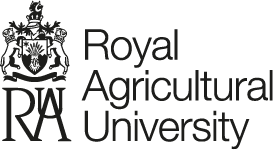Microclimate, an important part of ecology and biogeography
Kemppinen, Julia, Lembrechts, Jonas, Meerbeek, Koenraad Van, Carnicer, Jofre, Chardon, Nathalie, Kardol, Paul, Lenoir, Jonathan, Senior, Rebecca, Shen, Ting, Słowińska, Sandra, Vandvik, Vigdis and Zuza, Emmanuel Junior (2024) Microclimate, an important part of ecology and biogeography. Global Ecology and Biogeography, 00 (e13834). pp. 1-23.
|
Text (Journal Article)
Global Ecology and Biogeography - 2024 - Kemppinen - Microclimate an important part of ecology and biogeography.pdf - Published Version Available under License Creative Commons Attribution. Download (7MB) | Preview |
Abstract
AbstractBrief introduction: What are microclimates and why are they important?Microclimate science has developed into a global discipline. Microclimate science is increasingly used to understand and mitigate climate and biodiversity shifts. Here, we provide an overview of the current status of microclimate ecology and biogeography in terres-trial ecosystems, and where this field is heading next.Microclimate investigations in ecology and biogeography: We highlight the latest research on interactions between microclimates and organisms, including how micro-climates influence individuals, and through them populations, communities and entire ecosystems and their processes. We also briefly discuss recent research on how or-ganisms shape microclimates from the tropics to the poles.Microclimate applications in ecosystem management: Microclimates are also impor-tant in ecosystem management under climate change. We showcase new research in microclimate management with examples from biodiversity conservation, forestry and urban ecology. We discuss the importance of microrefugia in conservation and how to promote microclimate heterogeneity.Methods for microclimate science: We showcase the recent advances in data acqui-sition, such as novel field sensors and remote sensing methods. We discuss micro-climate modelling, mapping and data processing, including accessibility of modelling tools, advantages of mechanistic and statistical modelling and solutions for computa-tional challenges that have pushed the state-of-the-art of the field.What's next?We identify major knowledge gaps that need to be filled for further ad-vancing microclimate investigations, applications and methods. These gaps include spatiotemporal scaling of microclimate data, mismatches between macroclimate and microclimate in predicting responses of organisms to climate change, and the need for more evidence on the outcomes of microclimate management.
| Item Type: | Article |
|---|---|
| Keywords: | Animal ecology, biodiversity, biogeography, climate change, data acquisition, ecosystem management, microclimate, modelling, plant ecology |
| Divisions: | Agriculture, Science and Practice |
| Depositing User: | Dr Emmanuel Zuza |
| Date Deposited: | 24 Apr 2024 15:14 |
| Last Modified: | 24 Apr 2024 15:14 |
| URI: | https://rau.repository.guildhe.ac.uk/id/eprint/16752 |
Actions (login required)
 |
Edit Item |

